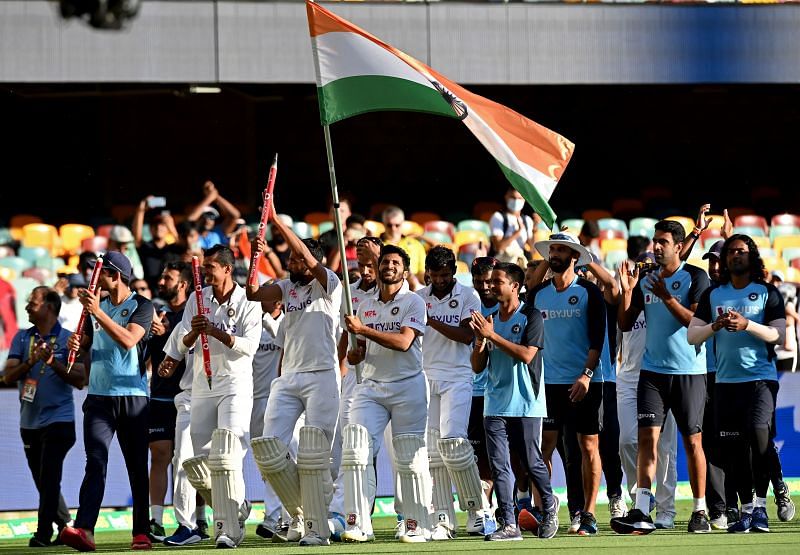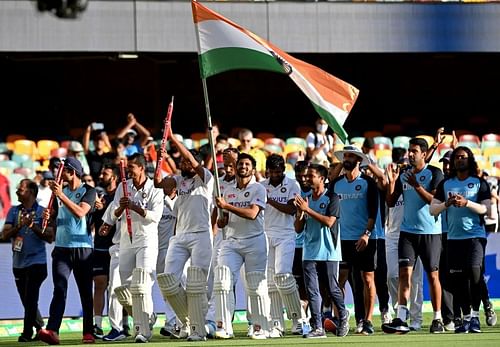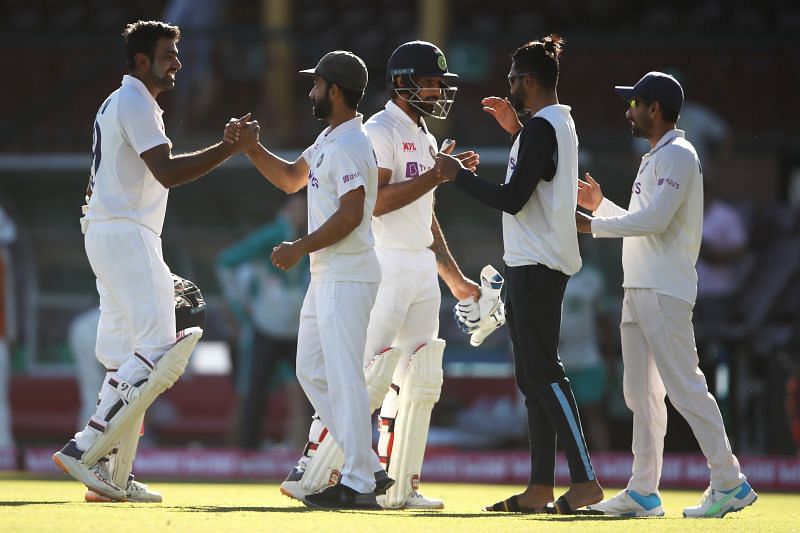
Historic Team India victory brings together New India like days of yore

I write this long after the dust has settled at the Gabba, a former fortress now in ruins, long after the social media hullabaloo over Team India's miracle win at the ground has peaked. But the aftershocks of this win will be felt for days after, for ages after.
That's because, though Team India was battered, bruised, depleted and even racially abused, they were never broken. Their resilience on the face of odds that kept on stacking up was unprecedented, probably never seen before in a touring Team India side despite famous away wins of yore, including the 2018-19 series win on the same shores. Yes, I say this keeping in mind the legendary double series win in the West Indies and England in the 70s.
That's because this Team India kept on losing vital cogs at every juncture, put up what was almost a makeshift 11 for their toughest assignment in the fourth Test, and then bowled out the Aussies twice while also completing the highest successful chase at the ground with grit, determination and a healthy dose of brashness exemplified by Rishabh Pant's match-winning innings under the setting Brisbane sun.
It was also a victory for the youth, as shown by the silken class of Shubman Gill who won hearts galore in this series, while also scoring valuable runs.
This was also a series inflected by a plethora of personal narratives: Mohammed Siraj's emotional journey to the game's pinnacle after losing his father and facing abuse at the hands of delinquent spectators, Pant's fearless stroke-making under immense pressure, and Hanuma Vihari, Ravichandran Ashwin (third Test) and Cheteshwar Pujara's bravery on the face of serious injuries, debutant Washington Sundar and newcomer Shardul Thakur playing like old-timers against one of the best teams in the world.
This was a series of literal wars, with the Australian quicks Pat Cummins, Josh Hazlewood and Mitchell Starc using the short ball indiscriminately and often excessively dangerously even against tailenders. Integral players of this Team India side, Ravindra Jadeja and Mohammed Shami, suffered fractures as a result.
Let us also not forget that they were skittled out for 36 in Adelaide in the first Test, in what seems like aeons ago. The resultant defeat meant most experts began predicting a 4-0 whitewash by Australia.
But above everything else, this series win stands out and transcends all those narratives because of its impact on the Indian psyche, because of its almost old-fashioned charm in tying together a country through a sporting success.
Team India reimagines national unity

The late political scientist and historian Benedict Anderson put forward the idea of imagined communities in his eponymous book. He proposed the idea that all nations are composed of people who imagine themselves to be part of the same community despite never actually physically meeting all their fellow members of the perceived community.
In essence, nationalism and the idea of a nation is a social construct wherein members of the particular group need to imagine themselves as belonging together. This becomes a particularly important concept for a nation such as India that is composed of such diversity.
Cricket, like many other symbols of nationhood, has held this country together for years. Often, one of the only similarities between two Indians from absolutely diverse backgrounds is their love for the game.
Schisms that are inherent in all nations need to be overridden by glues such as the game. However, somewhere, this aura of the game had been lost in New India to an extent. But not any more.
I received a phone call from a friend living in Chicago in the afternoon, saying how he had watched a game of cricket after a long long time, and enjoyed it.
He was not the only member of the diaspora to feel invested in a Team India victory this way after a long period. Many Indians living in the country echoed a similar sentiment.
This famous series victory for Team India, which will go down in the annals of the game, has managed to truly imagine a community that transcends geographical barriers besides all the other inherent divisions in this country. In other words, this victory for Team India has managed to bring the nation together again the way it used to in the days gone by.
Topping the World Test Championship table is a small prize in comparison.